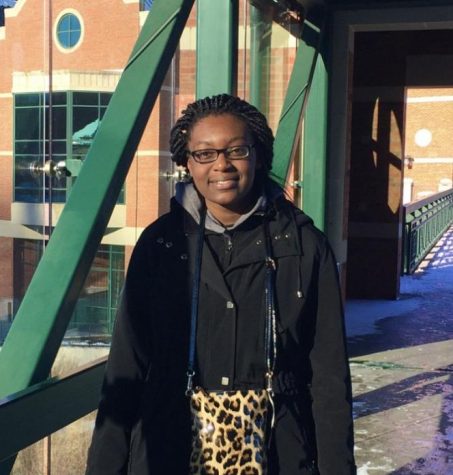First-generation students face barriers in applications, finances
January 25, 2020
For many students, college is an investment worth pursuing, but the experience often comes with hardships, especially for first-generation students.
First-generation students are the first person in their immediate family to attend college and earn a degree.
According to GreatSchools, a nonprofit aimed at providing information about schools to parents, out of 7.3 million undergraduate students nationwide, about 20% are first-generation students.
Madison Dent, a junior art education major, identifies as a first-generation student. She didn’t know how to apply for college and had to get additional help from the university to complete her application.
“My parents didn’t know how to help me through that process. Luckily, App has really good people in their office because I was constantly asking questions,” Dent said.
Although the application process was a challenge for Dent, she said learning college terminology was somewhat easy. Dent really appreciates the time she spent at a community college because she learned how to navigate the academic expectations for college and the importance of critical thinking.
“My school offered a governor’s school program, so I’ve been taking college classes since 10th grade,” Dent said.
Dent said she isn’t used to a bigger school population, however.
“Large scale is very different because it’s not one-on-one, they’re working with tons of people,” Dent said.
Not every student’s college experience is the same. Some first-generation students base their expectations for college on the media.
According to Shout Out UK, the media can manipulate, influence, persuade and pressurize society, controlling the world in both positive and negative ways; mentally, physically and emotionally.
Student Affairs administrator and professor of graduate studies Sonja Ardoin works with graduate students at App State to help reduce barriers that first-generation college students face.
Ardoin said she feels that the media’s interpretation of college is complicated.
“I don’t think there’s a full picture or understanding of what higher education is in the media,” Ardoin said.
According to a 2018 study done by the University of Kansas, first-generation college students based their assumptions about college on media. With the first three months of college, students reported that their assumptions did not match their experience.
Ardoin, a first-generation college student herself, said the media doesn’t depict the social side of college and what’s actually being taught at institutions.
“I knew if I wanted to be successful, I had to push myself,” Ardoin said.
Her community offered a program allowing students to go to any university in the state of Louisiana for free if their grades were at good standing and they had impressive standardized test scores. Ardoin got into Louisiana State University.
Ardoin works with graduate students at App State and wants to help reduce barriers that first-generation college students face.
Coming from a small, rural community with a low poverty rate, Ardoin said growing up, she was a “big fish in a small pond.” The environment was bigger than expected, but she knew LSU was the university she wanted to go to.
“The support I got from my family was great, but they couldn’t help me financially,” Ardoin said.
Affording college can be a problem for many students. According to the National Center for Education Statistics, 85% of students receive some form of financial aid to cover the majority of college expenses. Sometimes, financial aid doesn’t provide enough funds to cover college expenses for the academic year.
Lidia Lopez, a junior interior design major, said she had to take out student loans to cover some of her costs for college. Sometimes, taking out loans is not enough to pay for living on or off-campus.
“I’m really scared about next year though because I’m not sure what’s going to happen with housing,” Lopez said. “I don’t know where to find good apartments or who to live with. I should start looking, but I don’t know how to pay for it.”
According to GreatSchools, 50% of all first-generation college students in the U.S. are from low-income families.
Lopez’s parents used to work for a factory, and she said they can only do so much to help their daughter pay for school. Lopez had to pick up a job in the concession stand on campus. According to the National Center of Education Statistics, many undergraduates ages 16 to 64 have jobs at the same time as they are enrolled in school. Being employed can help those students pay for classes and other living expenses.
She said even though there are a few financial issues she has experienced in college, it doesn’t hinder her from wanting to earn a degree. Lopez’s parents have always encouraged her to get a degree and do something she’s passionate about.
“I want to do something with my life, be somebody. My parents always tell me to go to school because you don’t want to work under those conditions, in a factory,” Lopez said.
Lopez is proud of her parents because they own their business with little educational background. Lopez said she believes people can be successful without a degree, but wants to get a degree herself.
“I want to be a role model for my younger siblings and show them that college is an option,” Lopez said.
Ardoin works with graduate students at App State and wants to help reduce barriers that first-generation college students face. She said she believes the situation is different for those students and strives to build a platform that helps students navigate their way through college.
Ardoin said she believes some people are proud to be identified as a first-generation college student nowadays.
“I have so much joy, gratitude and proud to represent first-generation students,” Ardoin said.












